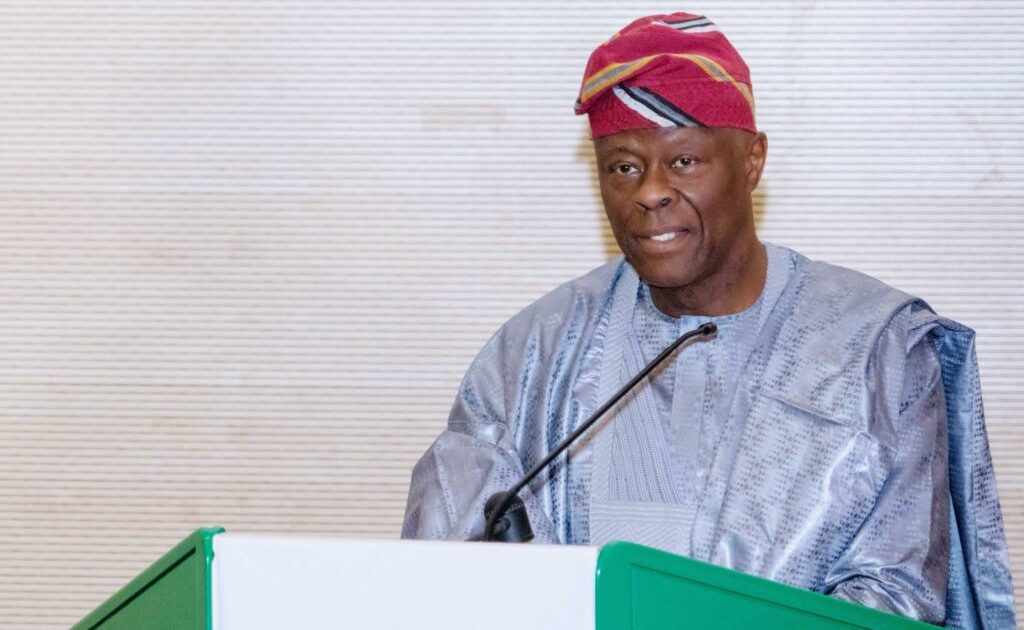The Nigerian Federal Government is actively working towards fully implementing a Supreme Court ruling that grants autonomy to local governments, a move deemed crucial for grassroots development and poverty reduction. Finance Minister Wale Edun acknowledged the complexity of the transition, highlighting the need to reconcile the ruling with existing institutional structures, particularly those related to primary healthcare and basic education, which are currently under state control. While the government has successfully barred unelected local councils from receiving federal allocations, directly transferring funds to democratically elected councils requires a significant overhaul of the current funding architecture to avoid disrupting essential services. This restructuring process, according to Edun, is a “work in progress,” requiring careful consideration and strategic planning.
The Supreme Court’s ruling mandates two key actions: firstly, only elected local governments should receive federal allocations; and secondly, these allocations should be transferred directly to them. The federal government, committed to upholding the rule of law, has enforced the first directive. However, the second directive presents a more intricate challenge. Existing systems for disbursing funds for primary healthcare and basic education are intertwined with state-level oversight, necessitating a comprehensive restructuring to facilitate direct transfers without jeopardizing service delivery. The Minister emphasized the government’s dedication to realizing the full implementation of the ruling, recognizing the vital role of local governments in achieving President Tinubu’s Renewed Hope Agenda, which prioritizes grassroots development and poverty alleviation.
Empowering local governments to manage their resources effectively is crucial for realizing the transformative potential of the Renewed Hope Agenda, particularly its poverty reduction goals. Minister Edun emphasized the interconnectedness between macroeconomic stability and local empowerment, stating that substantial economic growth, in the region of 7% annually, is needed to meaningfully impact the lives of the poor and vulnerable. This growth, he argued, depends on increased productivity and job creation, both of which can be facilitated by well-resourced and efficiently managed local governments. Autonomy, therefore, is not merely a legal mandate but a developmental necessity, enabling local governments to become effective engines of growth and service delivery at the grassroots level.
The government’s commitment to strengthening local governance goes beyond financial autonomy. Edun highlighted the nationwide implementation of a nutrition program across all 774 local government areas and the Local Government Connectivity Project, aimed at bridging the digital divide and improving access to essential services like healthcare and education. Improved connectivity, he argued, can empower local communities, facilitate access to markets, and enhance educational opportunities, contributing significantly to inclusive growth. These initiatives underscore the government’s broader strategy of equipping local governments with the resources and infrastructure necessary to become effective drivers of development.
Complementing the government’s policy pronouncements, other stakeholders emphasized the need for fiscal discipline and transparency at the local level. Victor Muruako, Chairman of the Fiscal Responsibility Commission, urged local governments to embrace fiscal prudence and accountability in managing their newfound financial autonomy. He cautioned against unsustainable debt accumulation, emphasizing that borrowing should adhere strictly to the Fiscal Responsibility Act. Muruako stressed that autonomy should not be interpreted as freedom from accountability but rather as an opportunity to enhance service delivery and human development within local communities. This emphasis on fiscal responsibility ensures that the empowerment of local governments translates to tangible improvements in the lives of citizens.
Ojobo Atuluku, Chair of Agora Policy, stressed the need to address the deep-rooted systemic and political obstacles that have historically hampered local governance. Atuluku advocated for a fundamental overhaul of the local governance system, dismantling patronage networks and fostering accountable institutions that genuinely serve the needs of their constituents. She announced the impending launch of the Local Governance Accountability Portal, an online platform designed to track statutory allocations to local governments, providing transparency on elected officials and governance profiles since 1999. This tool aims to empower citizens with information and promote accountability in local governance. Deborah Isser of the World Bank echoed these sentiments, emphasizing the political resistance that often accompanies decentralization efforts. She highlighted the reluctance of some state governors to relinquish control over local governments, citing capacity and accountability concerns. Noting Nigeria’s low ranking in key development indicators like maternal and child mortality, Isser urged stakeholders to prioritize pragmatic solutions for improving basic service delivery at the grassroots level. The World Bank, she affirmed, remains committed to supporting these reforms through its HOPE program, which focuses on strengthening governance, healthcare, and education at the subnational level.


